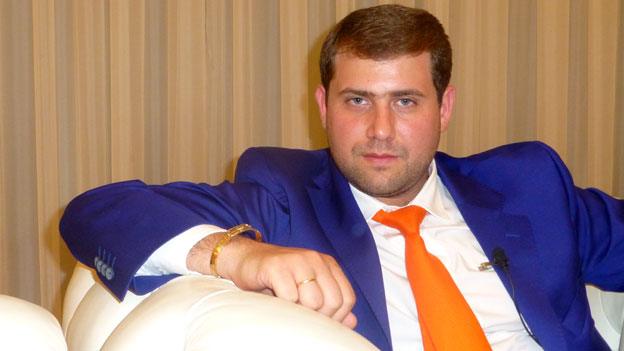Moldova crisis: An elite power grab?
- Published
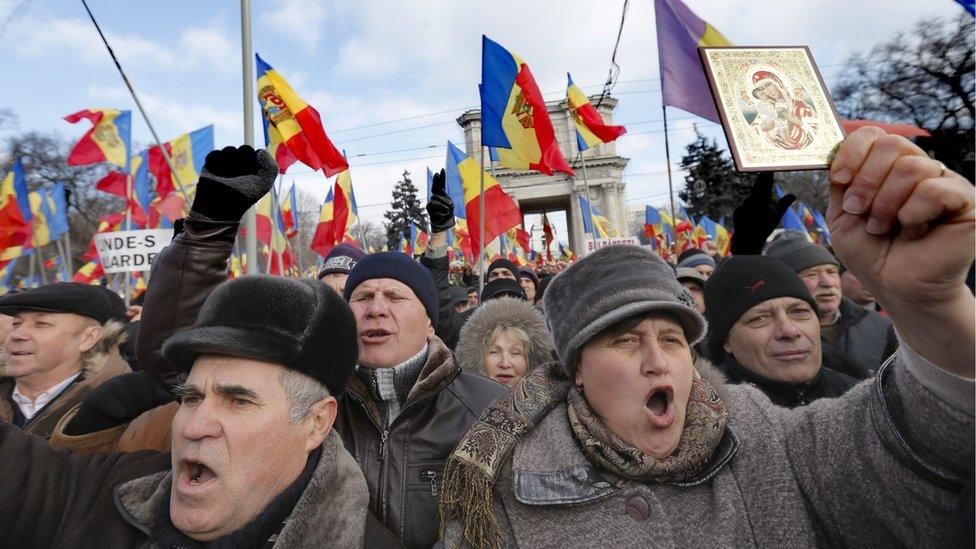
Protesters suspect a rich elite is trying to control Moldova in its own interests
Some people say the street protests in Moldova are by pro-Russian protesters trying to unseat a European-friendly government in a former Soviet republic.
But the reality in Europe's poorest country is more complicated than that.
It is a political crisis.
The anti-government camp is demanding the resignation of Prime Minister Pavel Filip's government and early parliamentary elections.
They include two pro-Moscow groups and one pro-European group - the Dignity and Truth movement, led by Andrei Nastase.
They have put their differences aside, at least temporarily, and have given the government until Thursday to come up with a schedule for elections. Otherwise, they threaten to begin a campaign of civil disobedience.
Pavel Filip is taking charge of Moldova at a time of deep economic crisis
At the heart of their demands, however, is a desire for sweeping change: to replace a political establishment, which they say is rotten with corruption and whose members are controlled by oligarchs.
The government's pro-European stance, they claim, is just a smokescreen to conceal this graft.
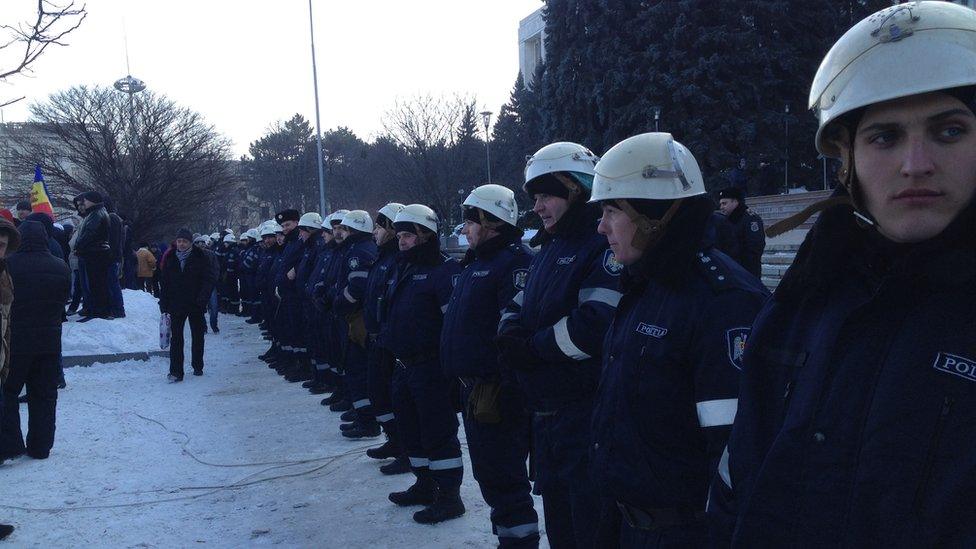
The government has warned that the demonstrations are destabilising the country
Last year, Moldova was rocked by what was for the country the mother of all scandals: more than €1bn (£710m) disappeared from three banks.
It was suspected that the money was embezzled. The loss also put a heavy strain on the financial system, since the €1bn represented about 14% of the country's GDP. Moldova's currency, the lei, was sharply devalued.
In the wake of the scandal, heads rolled:
Prime Minister Vlad Filat was arrested in connection with the bank fraud
His successor, Valeriu Strelet lost a no-confidence vote in October
Last week parliament approved another prime minister, Pavel Filip
But this unleashed another wave of outrage.
Pavel Filip's election was highly unorthodox, and may have violated protocol.
Deputies were suddenly called to vote within a couple of hours. Then Mr Filip was sworn in at midnight, seemingly in secret, since no media were invited.
Protesters stormed parliament, and more than 20,000 gathered on Sunday to demand that he resign immediately.
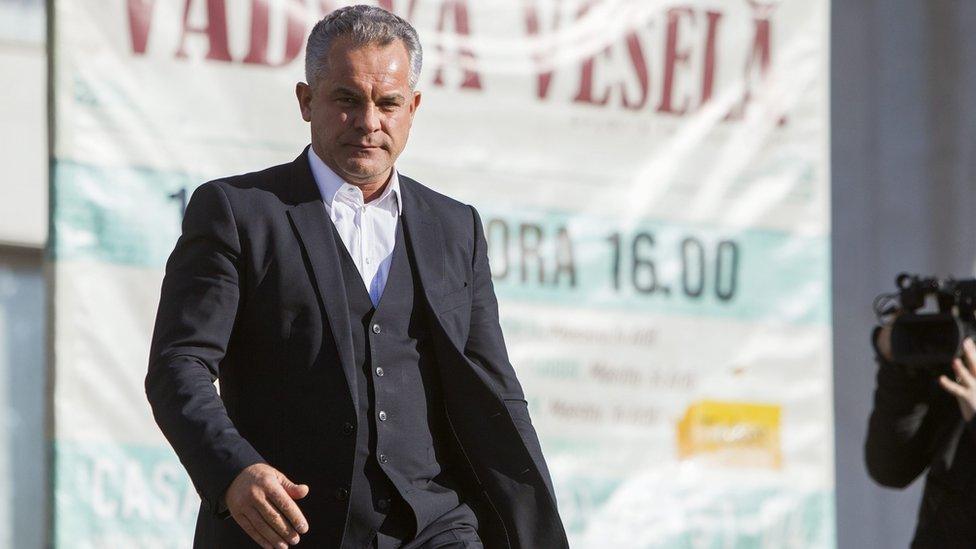
Critics complain the new prime minister is too close to Moldova's richest man Vladimir Plahotniuc
There is also some dispute about Pavel Filip's background.
'Captured state'
Critics say he is closely connected to the country's richest man, Vladimir Plahotniuc, who they maintain is the main power broker behind the scenes, and in their eyes the man most responsible for official corruption.
"Moldova is a 'captured state' and Mr Plahotniuc is the symbol of this evil," said Oazu Nantoi, programme director at Chisinau's Institute of Public Policy.
"A 'captured state' is when key state structures don't act on the basis of law and constitution, but are under the control of one person."
Mr Plahotniuc denies he is a political puppet master.
Anger and discontent
For his part, Prime Minister Filip told the BBC he vehemently rejected any suggestion he was not a fully independent politician.
Members of the government say it is the protesters who are destabilising the country and pursuing their own political agendas. Mr Filip said new elections could plunge the country into an even deeper economic crisis.
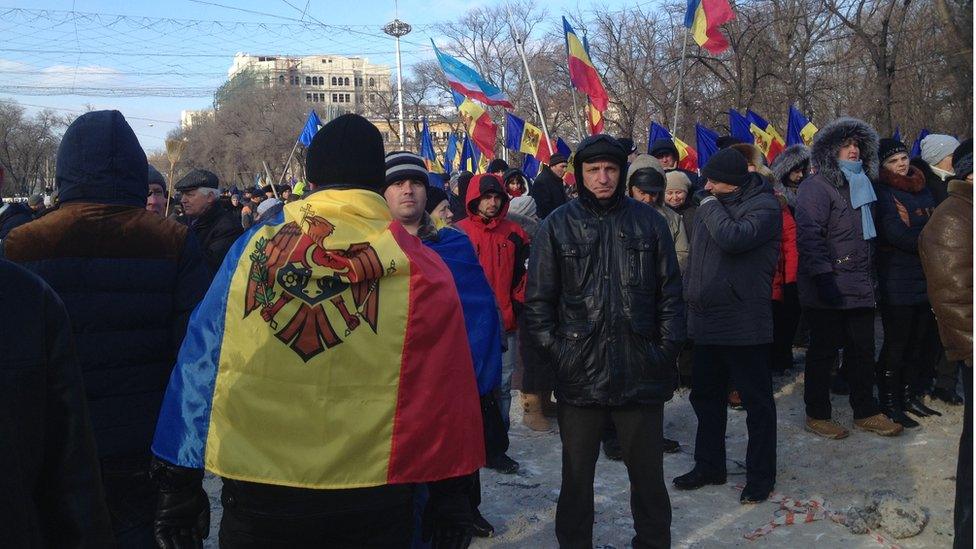
Protesters in Moldova want to see an honest government in charge
Some observers see the hand of Moscow behind the protests.
Whatever the true nature of the country's politicians and the opposition, there is no denying that anger and discontent are rising among the population.
"We want an honest government, for decent pensions, where people aren't deceived and their money stolen," said Lyubov Suvorova, as she stood near Chisinau's main train station, trying to sell a few household goods to earn a few dollars.
"We want changes - we just don't believe that the protests are going to change anything," she added.

Why is Moldova Europe's poorest country?

Moldova's economy is based chiefly on agriculture and the country has struggled to develop a more varied economic base ever since the industrialised Dniester region unilaterally declared independence in 1990.
The region to the east of the river Dniester - also known as Trans-Dniester - is inhabited mainly by Russian-speaking Slavs who were alarmed at the prospect of Moldova forging closer ties with Romania. The unresolved conflict over the region also damaged Moldova's economic ties with other former Soviet republics.
Didn't Moldova export lots of wine to Russia?
Wine used to be one of the country's main exports and was for a long time its main source of hard currency.
But in 2005 Russia banned the import of Moldovan wines, saying that this was because of their poor quality. However, many Moldovans believe that the real reason was to punish the country for straying from the Kremlin's orbit.
What is the mainstay of the Moldovan economy now?
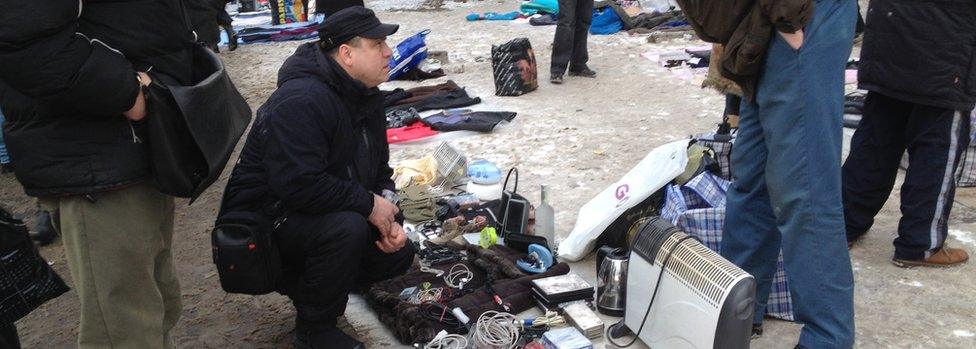
Moldovans have been badly hit by Russia's economic woes
The Moldovan economy still exports very little and is heavily dependent on remittances from Moldovans working abroad, especially from Russia, and so has been badly affected by Russia's recent economic difficulties.
Analysis provided by BBC Monitoring. You can follow BBC Monitoring on Twitter, external and Facebook.
- Published4 November 2024
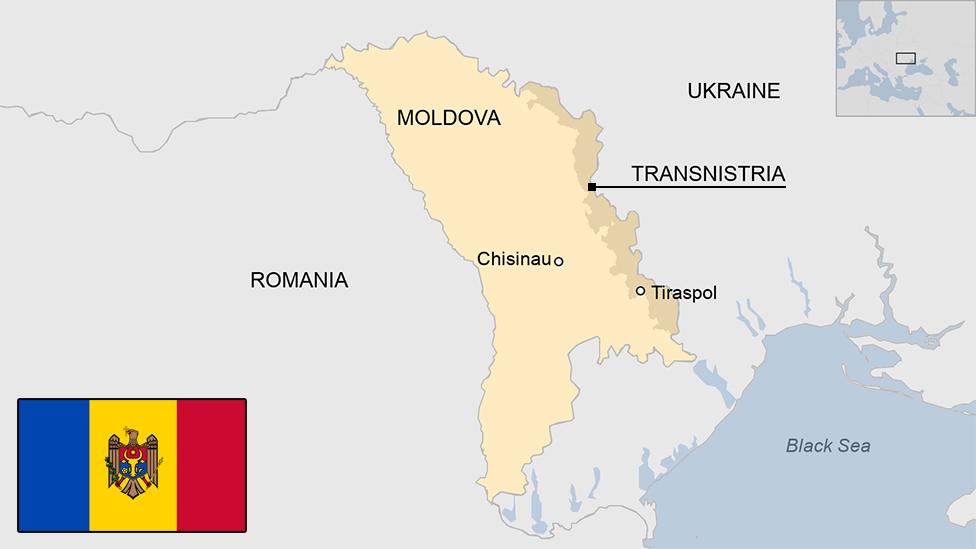
- Published25 January 2016
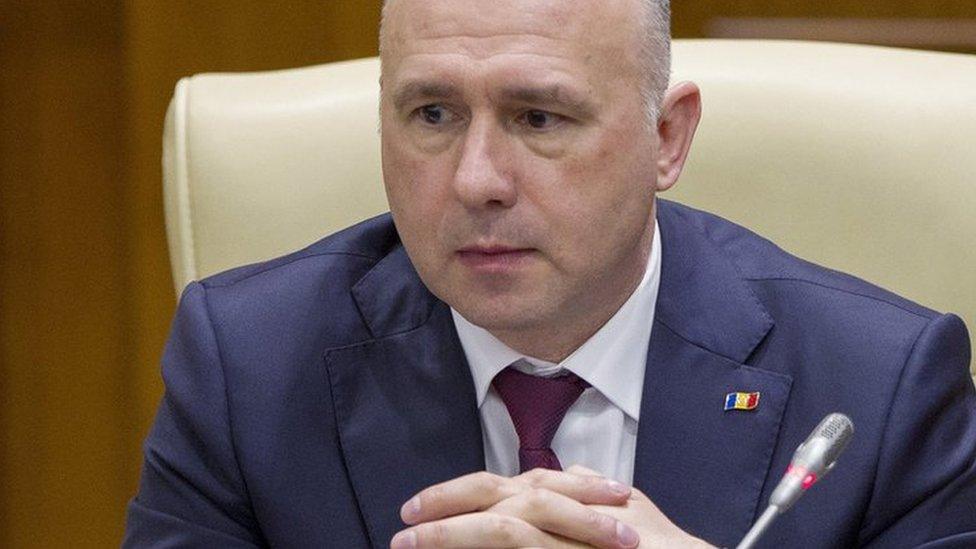
- Published18 June 2015
